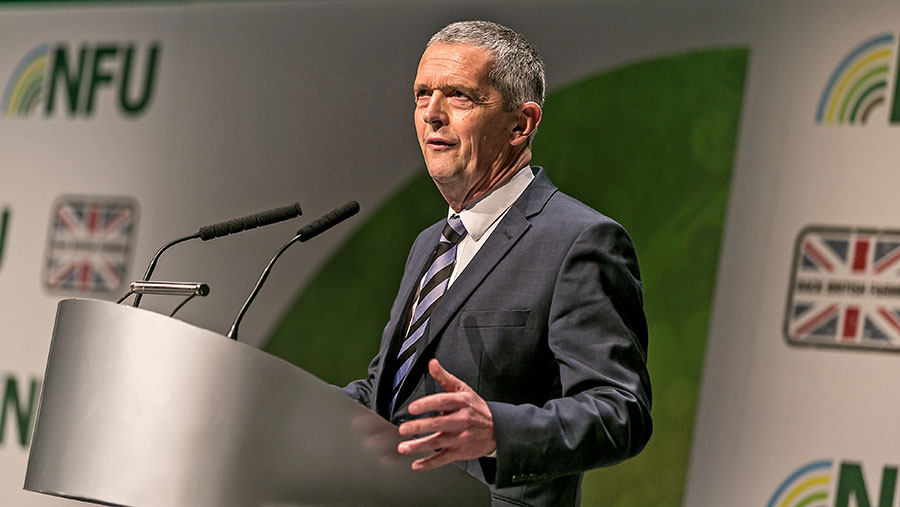Farm leader slams Countryside Stewardship ‘disgrace’
 Guy Smith © Richard Stanton
Guy Smith © Richard Stanton Recent bad experience with the Countryside Stewardship (CS) scheme means farmers have little confidence that agri-environment measures will be an attractive or effective part of any post-Brexit agricultural policy.
Addressing delegates at the NFU conference in Birmingham on Wednesday (22 February), NFU vice-president Guy Smith branded the delivery of CS a “disgrace”.
“We are very disappointed with the launch of Countryside Stewardship,” he said. “It has been badly managed, underresourced and ineptly designed.”
See also: NFU blasts lack of Defra clarity on Brexit
The fact Natural England (NE) had failed to get 2016 payments out on time and had failed to get 2017 agreements in a timely fashion instilled no confidence that the system would work in future.
Mr Smith said he had some sympathy with NE, which had suffered from a flaky IT system. It had also seen resources diverted to the Rural Payments Agency in the government’s quest to get 90% of Basic Payment Scheme dues out by the end of December.
“It is imperative that Defra and Natural England get this back on track as soon as possible.”
Engagement
There was clearly a willingness among farmers to engage with agri-environment schemes, but it was essential the government reverted to a “broad and shallow” approach, as existed under the old Entry Level Scheme, said Mr Smith.
The complexity of getting into CS was one reason why less than one-third of farmers coming out of old ELS and HLS agreements were signing up to new agri-environment schemes.
Care also needed to be taken to strike the right balance between environmental protection and food production. Taking things too far, for example by “rewilding” the countryside, would simply result in the UK importing more food, which might accelerate destruction of rainforests.
Mr Smith also emphasised that environmental delivery should be measurable. Failure to demonstrate any effect on biodiversity or habitat would make it harder to argue for Treasury funding.
Dorset farmer George Hosketh told the meeting that farmers still needed to make a profit.
“We have to remember that anything that comes in an environmental wrapping, we have to spend on. If we aren’t going to make any profit, we won’t be in business to actually provide any environmental work.”
